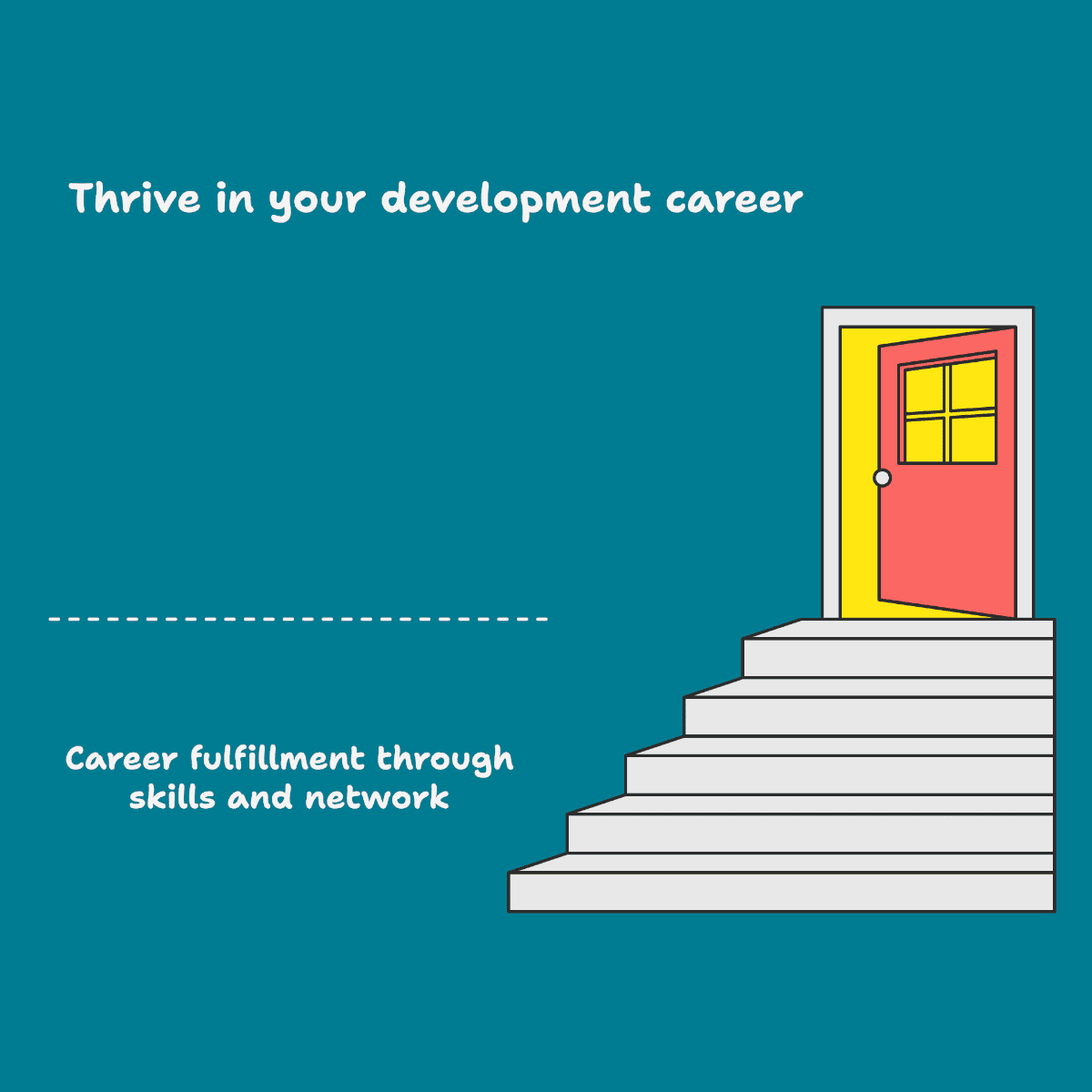I recently chatted with a developer who’s been coding for ten years. He now works at a company that doesn’t use the usual “junior → mid → senior → lead” ladder.
In places like that, many engineers wonder how to keep learning, stay noticed, and keep moving ahead without a new title.
Below is a simple, step-by-step guide that shows you how to grow your career on your own terms, starting right now.
Skill‑based goal: Choose a technology or soft skill you want to master (e.g., cloud architecture, public speaking).
Impact goal: Identify a measurable improvement you can drive (cut build time by 20%, revamp onboarding docs, etc.).
Visibility goal: Decide how you’ll showcase the work (short blog post, demo, internal talk).
✍️ Write these three goals somewhere you’ll see them every week, whether it’s Notion, notebook, or a sticky note on your monitor.
Break the next year into four quarters. For each quarter pick one focus, decide how you’ll learn it, and set a clear success marker.
Example roadmap:
Quarter 1 – Learn Docker basics via an online course + hands‑on labs.
Success: I can containerize a small service.
Quarter 2 – Dive into CI/CD pipelines; pair with a DevOps teammate and read the docs.
Success: I’ll deploy a feature without any manual steps.
Quarter 3 – Mentor a junior developer; hold weekly code‑review sessions.
Success: The junior reports increased confidence.
Quarter 4 – Practice public speaking; join a local meetup and give a 10‑minute lightning talk.
Success: I’ll deliver the talk to the team.
🔄 Don’t hesitate to adjust the roadmap whenever a new opportunity arises.
My manager once took me under his wing, saving me years of trial‑and‑error. Your mentor doesn’t have to be your direct boss. Consider these three options:
Peer mentor: A colleague whose work you admire. Ask for a 30‑minute coffee chat biweekly.
Cross‑team mentor: Someone in another squad with the expertise you need.
Reverse mentor: Teach a skill you already know (e.g., a new framework) in exchange for guidance in a different area.
💡 Rotate mentors every six months to keep fresh perspectives.
Weekly “What I Did” post: A short Slack or Confluence update highlighting a win, a lesson learned, or a blocker you solved.
Monthly demo: Reserve 10 minutes in a team meeting to walk through a feature or process improvement you built.
Internal blog: Write a brief article about a challenge you tackled and how you solved it.
📈 Consistent sharing builds reputation and puts your impact in front of leadership.
When a new project pops up, volunteer if it pushes you slightly outside your comfort zone.
Ask, “Can I help with X?” even if you’re not the expert yet, the experience counts.
Offer to pilot a new tool and document its adoption.
🚀 These assignments act like mini‑promotions. They expand your skill set and demonstrate initiative.
Monthly review: Look at your roadmap, tick off what you finished, and note any obstacles.
Quarterly reflection: Ask yourself, “What did I learn? How did I add value? What’s next?”
Goal update: Refine or add new objectives based on what you discovered.
📝 Making reflection a habit turns everyday work into a great career story you can share anytime.
Even in flat orgs, managers care about growth. Set up a brief 15‑minute “career check‑in” every 2–3 months:
Share your roadmap and recent wins.
Ask for feedback on where you can add more impact.
Discuss any resources you need (training budget, conference tickets, books, etc.).
🤝 Being proactive shows you’re serious about development, and it gives leaders concrete data to support you when opportunities arise.
Set personal growth goals (skill, impact, visibility)
Create a quarterly roadmap (one focus per quarter, clear success metric)
Find a mentor (peer, cross‑team, reverse)
Share wins weekly (Slack/Confluence) & demo monthly
Take on stretch assignments
Review monthly, reflect quarterly
Schedule regular career check‑ins
Pick clear, personal growth goals.
Map them out quarter by quarter.
Find a mentor—anyone willing to help.
Showcase your work often.
Take on slightly bigger tasks.
Review, reflect, and adjust.
Tell your manager what you’ve achieved.
Your career path is your responsibility, no one will do the hard work for you. And if you work in a flat structure, it just means, you have even more freedom to shape it yourself.
Happy growing! 🌱
— Gábor
.png)




